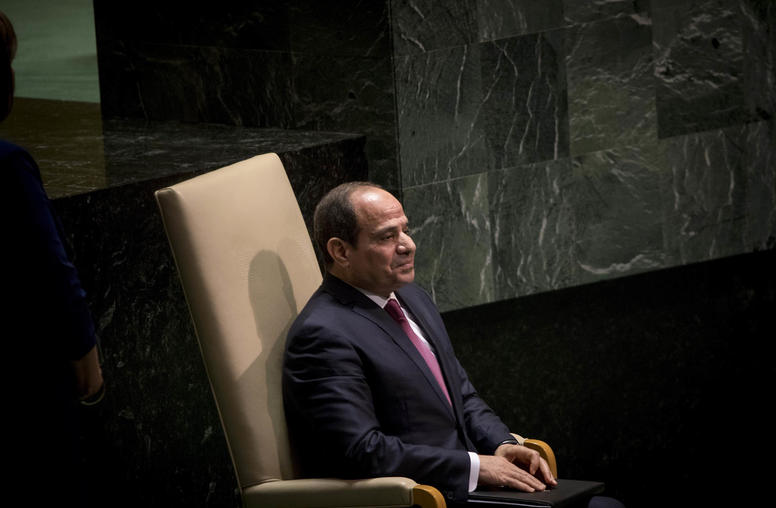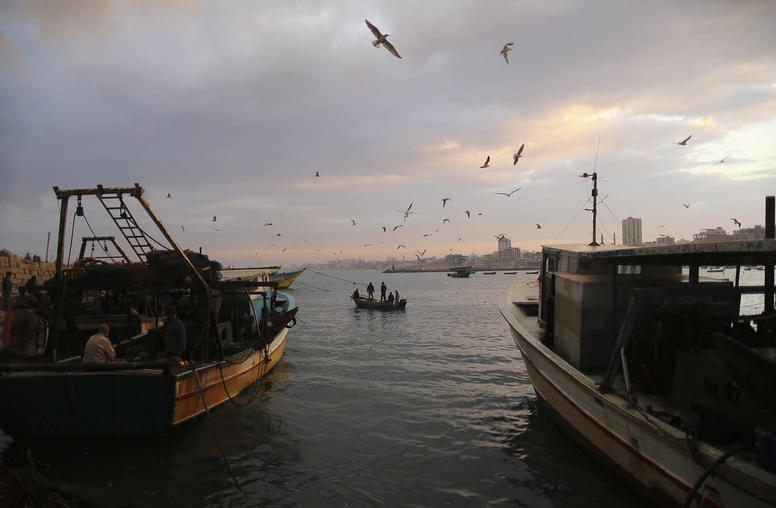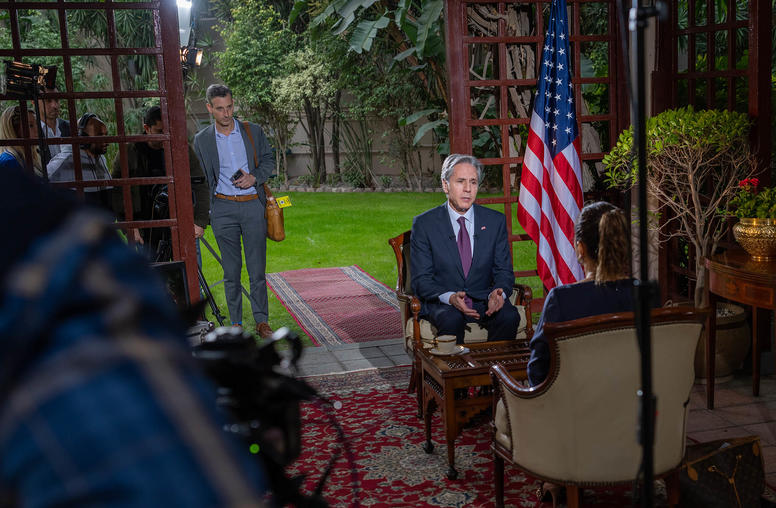President Obama's Speech and Gender
Following President Obama's speech on the Middle East, USIP's Kathleen Kuehnast examines how gender plays an important role in peacemaking and prosperity, and the influential role women are playing in the Arab Spring.
What evidence backs up President Obama’s assertion that countries where women are empowered are more likely to be peaceful and prosperous?
The most recent Global Gender Gap Report put out by the World Economic Forum shows that greater gender equality correlates with higher levels of gross domestic product (GDP). Likewise, Goldman Sachs Global Economics recent report also supports that closing the gap between male and female employment can have major economic implications for the global economy. For example, it could boost U.S. GDP by as much as 9 percent, Eurozone GDP by 13 percent, and Japanese GDP by 16 percent. A reduction in this employment gap has also been an important driver of European growth.
When we look at conflict countries by contrast, researchers have developed a dataset of conflicts from 1960 to 2001, and have found that states characterized by gender inequality are more likely to experience intrastate conflict due to an uneasy vicious circle of discrimination, inequality, and violence. Whereas states that have higher levels of gender equality, reflect less aggressive tendencies toward settling interstate disputes.
Another way to look at the empowerment of women is through the security lens. U.N. Undersecretary General for Peacekeeping Operations Alain Le Roy remarks that “peacekeepers understand all too clearly that our efforts to avoid conflict relapses in fragile post-conflict countries can only succeed if we ensure that all members of society have an equal stake in safeguarding the peace dividend.”
Finally, we need to remember that altering social roles between men and women can sometimes take a generation for such changes to gel. A case in point is Liberia, where the persistent and peaceful activism of Muslim and Christian women significantly contributed to the eventual peace talks that ended the civil war. These women put pressure on warring parties to come to an agreement. What followed was the Liberian presidential election of Ellen Johnson Sirleaf, who is Africa’s first and currently only elected female head of state. Prioritizing education and health care, Sirleaf is a world leader on the importance of women’s access to equitable development. Over a decade later, Liberia remains at peace but is still struggling to bring women into other markets beyond low-paying agricultural jobs of which they occupy over half of the sector.
How does that square with the developments in the Middle East and North Africa right now? That is, how are women faring in this “Arab spring”?
While there has been notable progress over the last five years in terms of economic opportunities, improved educational attainment, and political participation, a substantial deficit in women’s rights still persists in every country in the region. Nonetheless, women have been an active force behind this Arab awakening in spite of the relative low media coverage of women.
Women were among the first protesting in Tunisia, where they represent over 40 percent of the country’s union members, and in this capacity have continued pressing the transition government toward real reform.
We have seen women as change agents calling for demonstrations in Egypt. Among them is notably Asmaa Mahfouz, whose YouTube video posted in January sparked protests in Tahrir Square.
In Syria, two thousand women and children blockaded the main road in Syria, risking their lives and demanding the release of men rounded up in villages. As the result, authorities released 100 of the detainees.
In unprecedented manner, women in Yemen publicly condemned President Saleh’s statement that women protesters were violating cultural norms that prohibit men and women together in public space, telling them that they should stay home. In response, thousands of women took to the streets to show they would “not accept being degraded by [their] ruler.”
With full recognition that the road ahead will be rocky if not treacherous, a couple of notable signs from the region indicate that the protests have opened up a small window of opportunity for social norms to reconfigure:
Bothaina Kamel, a former talk show host, is running to be Egypt’s first elected female leader, and believes she would never have been able to do this had the revolution not happened. Tunisia has recently ruled that men and women must be featured in equal numbers as candidates in the upcoming July 24th elections. One Tunisian women’s rights activist reinforced the ruling with her remarks that “it is only right in a country where men and women fought side by side for democracy.”
However, human rights activists within and outside the region worry that these small gains may be very short lived during this transition period. Case in point, no women were appointed to the commission to reform Egypt’s constitution prior to the September elections, and only one woman was appointed to the interim cabinet (out of 29 persons). Probably among the most symbolic disappointments was women who gathered in Tahrir Square on March 8th to celebrate International Women’s Day were attacked by a group of young men imploring them to go home.



